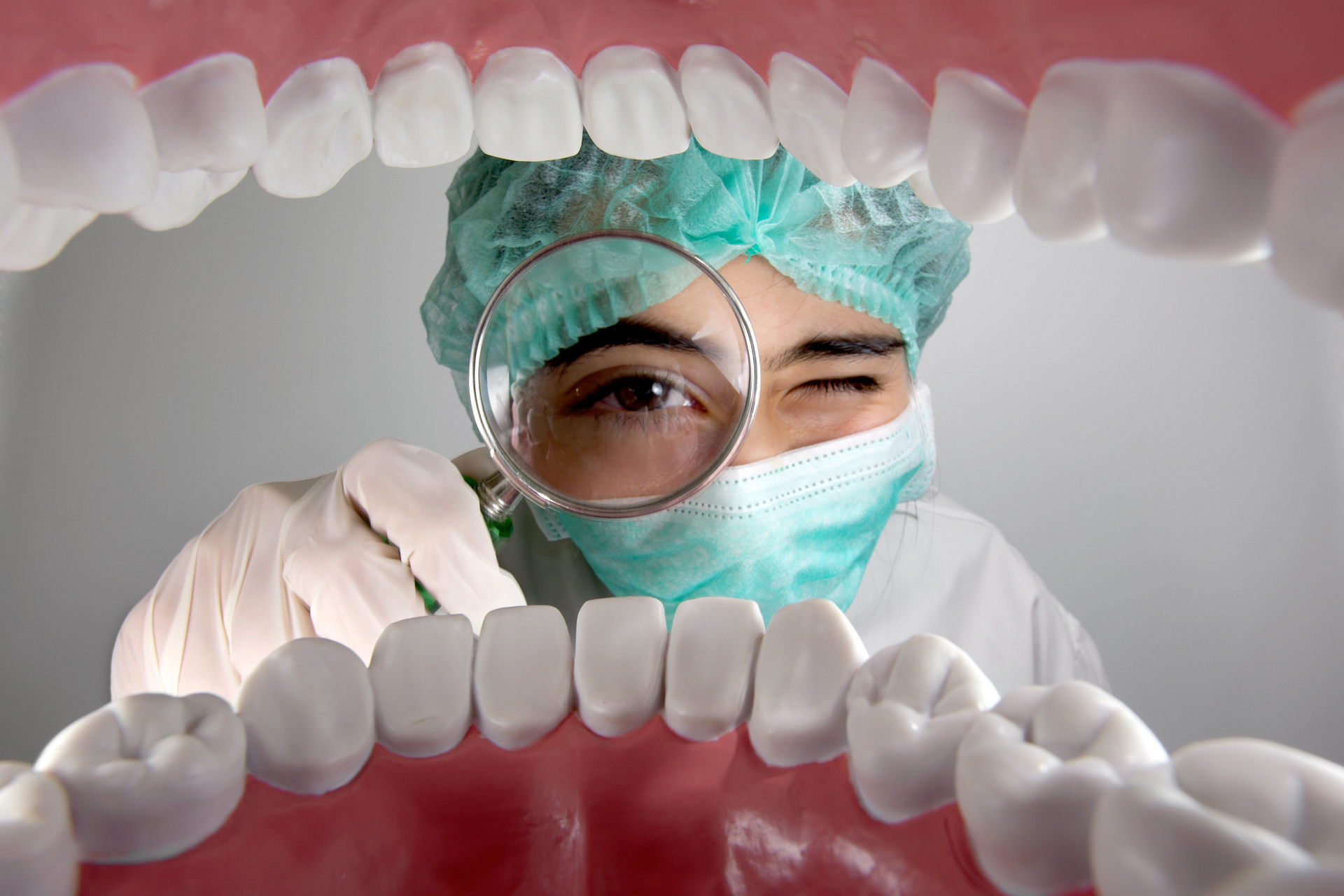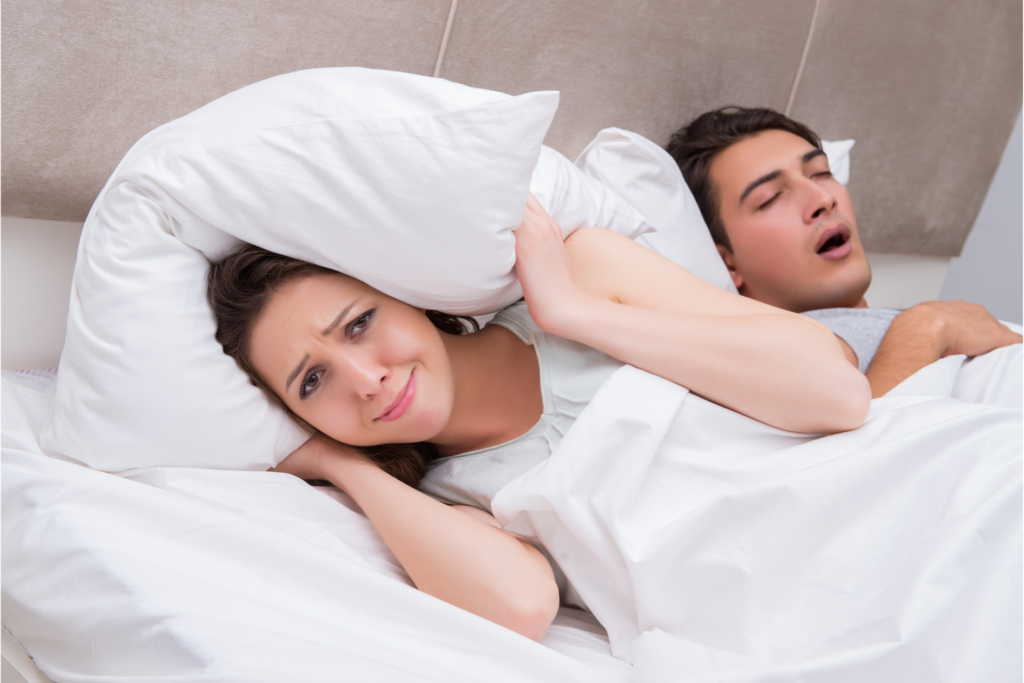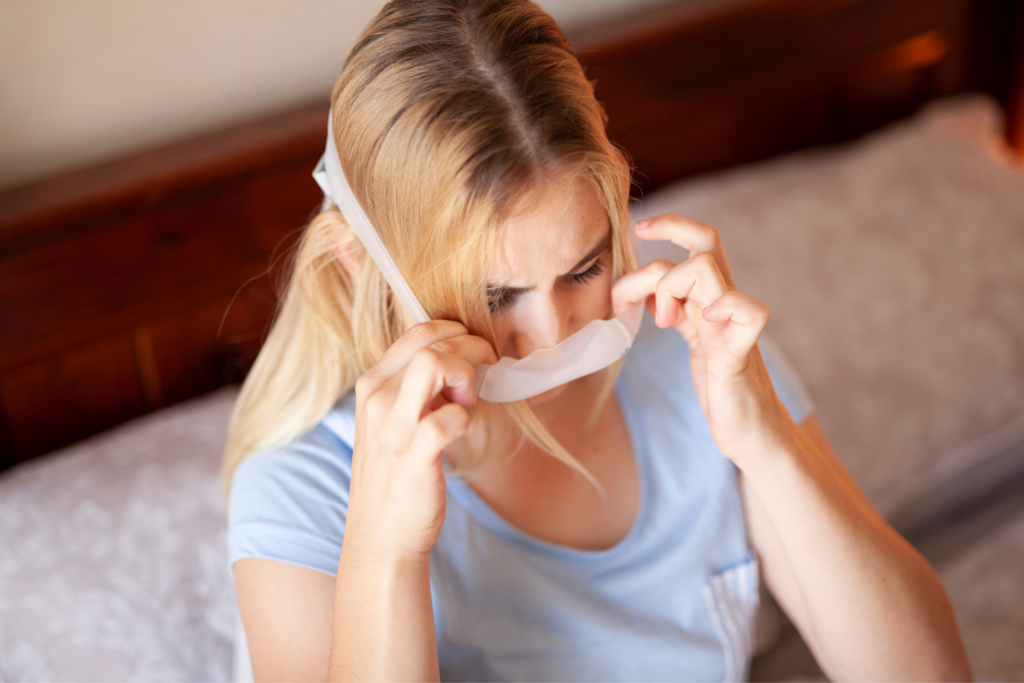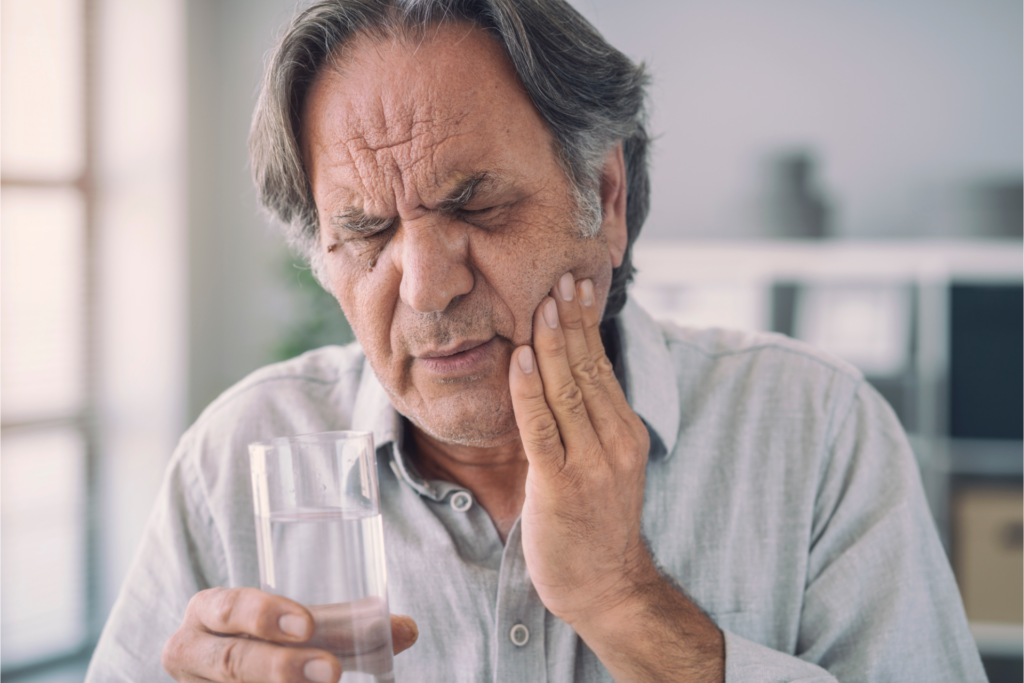Do you ever think about how sleep affects your dental health? Sure, you may brush your teeth before bed and every morning right when you wake up, but the consequences of poor sleep on your oral health are often overlooked.
Sleep apnea’s damaging effects on your overall health are well-known, but how does sleep apnea affect your oral health? Let’s take a look.
How Sleep Apnea Affects Your Dental Health
If you want to learn more about obstructive sleep apnea’s wide effects on your health in more detail, check out our blog! Don’t worry, we’ll give you a brief rundown of the disorder here too.
Obstructive sleep apnea (OSA) is a serious sleep disorder where you experience multiple irregular breathing episodes while you sleep. Most of these breathing interruptions are hypopneas, or decreased airflow as you sleep. Brief pauses or stops in your breathing are apneas.
These irregular breathing patterns are caused by your body obstructing your airways; typically, it’s your tongue or the soft tissue in your throat that causes the obstruction, and the rattling in your airway as you sleep causes the loud snoring associated with the disorder. Snoring is the sound of hypopneas taking place.
In cases of severe sleep apnea, you may experience 30 or more breathing interruptions per hour!
If you have obstructive sleep apnea, then you’re likely familiar with its symptoms that affect your mouth and throat. On top of decreased airflow, you’re likely to also experience dry mouth and a sore throat with sleep apnea because of the loud snoring and mouth breathing that accompanies the disorder.
However, bruxism (also known as teeth grinding) is another common side effect of obstructive sleep apnea. When your tongue or the soft tissue in your throat relax and obstruct your airway, you may reflexively clench your jaw or grind your teeth in response. This can help reduce your sleep apnea symptoms, but it can also damage your teeth and contribute to cavities and tooth decay.
Sleep apnea can also contribute to temporomandibular joint (TMJ) disorders. Your TMJ connects your lower jaw to your skull, and sleep apnea can contribute to these disorders if you reflexively clench your jaw while you sleep. These disorders can cause teeth grinding, headaches, and jaw aches.
The dry mouth that often accompanies obstructive sleep apnea is more than uncomfortable too— it can also damage your oral health. Sleeping with your mouth open can increase the production of plaque on your teeth, and can make you more vulnerable to tooth decay, cavities, and gum disease.
So if you’re noticing some new discomfort or problems in your mouth, think about how you’ve been sleeping. If you haven’t been sleeping well, then you may have undiagnosed sleep apnea.
Signs You Have Undiagnosed Sleep Apnea
Untreated sleep apnea is bad news for your oral health and your overall health. Unfortunately, it’s very difficult to know that you have sleep apnea because its main symptoms happen while you’re sleeping. Treating the source of your problems is virtually impossible if you don’t know what’s causing it.
Here are some signs that you have undiagnosed sleep apnea:
- Loud snoring that can be heard throughout the house
- Coughing, choking, or gasping for air during sleep
- Dry mouth
- Sore throat in the morning
- Excessive daytime sleepiness
- Difficulty concentrating during the day
- Brain fog
- Feeling exhausted even though you got a full night’s sleep
Interestingly enough, oral health problems can also be a sign of poor sleep quality or even untreated sleep apnea. A study from Clinical Medicine & Research has found that oral malformations found in children or even newborns can eventually lead to obstructive sleep apnea as the child ages.
The researchers suggest that oral health professionals like your dentist can potentially make observations about your overall health during your visits and recommend treatment options via another healthcare professional, such as a sleep physician for sleep problems. [1]
How to Prevent Sleep Apnea from Ruining Your Teeth (And Your Health)
If you’re having problems with your teeth, you may be thinking about preventive dentistry or restorative dentistry to fix things up. However, these options aren’t ideal because they’re neither cost-efficient nor pleasant, especially if you dread your trips to the dentist. They also don’t address the root cause of your problem, sleep apnea.
Treating sleep apnea is the best way to prevent or even undo some of the damage to your body. The most popular sleep apnea treatment is continuous positive airway pressure or CPAP treatment.
CPAP therapy uses a consistent stream of pressurized air to gently hold your airways open while you sleep, preventing obstructions and allowing you to sleep normally.
There are alternatives to CPAP available, such as oral appliance therapy. As the name implies, you use oral appliances similar to a mouthguard to reposition your tongue and lower jaw. This prevents them from obstructing your airway while you sleep. However, it’s important to note that these alternative therapies to CPAP only work in very specific cases; for example, oral appliance therapy works best for patients with mild sleep apnea. More severe sleep apnea requires a more proactive approach, like CPAP treatment.
Achieving better sleep and improved health begins with addressing sleep apnea, but a proper diagnosis is crucial for effective treatment.
Related: 6 Tips for Getting Used to CPAP and Sleeping Better Every Night
Why You Should Get Diagnosed for Sleep Disorders
It can be difficult to tell if you have a sleep disorder if you’re experiencing your main symptoms while you sleep. Many people don’t even realize that they have obstructive sleep apnea until their sleep partner notices their symptoms!
If you or your sleep partner notice any of the following symptoms, it’s important to talk to your doctor or a sleep specialist as soon as possible.
- Breathing pauses or stops during sleep
- Loud snoring
- Morning headaches
- A dry mouth or sore throat in the morning
- Feeling tired even after a full night’s sleep
- Body aches
- Brain fog or memory problems
You can add unexpected dental problems like bruxism and TMJ disorders to this list too.
A study from Clinical and Experimental Dental Research found that dental professionals aren’t able to consistently detect oral health problems caused by obstructive sleep apnea.
If you suspect that you have a sleep disorder such as obstructive sleep apnea, it is crucial to seek guidance from a sleep medicine physician. While dentists can provide valuable insights and support, it is important to consult with a sleep medicine physician for a proper diagnosis and to explore the most suitable treatment options for your specific needs. They have the expertise and specialized knowledge to accurately assess your condition and guide you towards effective management strategies.
Sleep Apnea is a Real Kick in the Teeth— But it Can be Treated!
Not only can sleep apnea ruin your ability to get a good night’s sleep, put your brain in a fog, and leave you feeling unhealthy, it can harm your teeth too!
Sleep apnea doesn’t just go away on its own. If you’ve been experiencing sleep problems (or even oral health problems) it’s important to reach out to your doctor or a sleep specialist to get tested for sleep disorders. The sooner you can get tested, the sooner you can get back to feeling like yourself again— both in feeling rested and keeping your mouth healthy!
Are you grinding your teeth over your sleep problems? Contact us at the Sleep Centers of Middle Tennessee today to schedule a consultation. We can help you get back to the healthy sleep you deserve.
References
- Schroeder, Kelly, and JoAnn R Gurenlian. “Recognizing Poor Sleep Quality Factors during Oral Health Evaluations.” Clinical Medicine & Research, U.S. National Library of Medicine, June 2019, www.ncbi.nlm.nih.gov/pmc/articles/PMC6546276/.
- Berggren, Kristina, et al. “Oral Health Problems Linked to Obstructive Sleep Apnea Are Not Always Recognized within Dental Care-as Described by Dental Professionals.” U.S. National Library of Medicine, Clinical and Experimental Dental Research, Feb. 2022, www.ncbi.nlm.nih.gov/pmc/articles/PMC8874038/.




